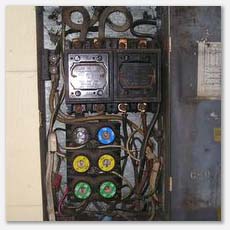Nate and I traveled through some lean financial times in our four decades of marriage. Any young couple starting out while one is a full time student has to wear a tight budget belt, probably buckled in the last hole. But newlyweds are pretty good at living on love. They believe their flush days are right around the corner.
When Nate got his first lawyering job at a downtown Chicago bank, we figured our salad days were over, and gravy was on its way. That proved true for a long while, but then the meat and potatoes began to diminish, and the gravy disappeared entirely. A government law change had collapsed Nate’s business, and what little money he was able to earn afterwards barely had a chance to register at the bank as it “flashed” through his checking account.
We stepped up our prayer efforts as the crisis continued, deciding it would be a good idea to add fasting, too. Neither of us knew exactly how God applied fasting to prayer requests, but we both knew it would somehow add extra power as we prayed. We called it “Fasting for Finances” which sounds catchy but is really hard to do. On “date nights” we’d arrange for babysitting, then drive to a parking lot and spend the evening praying in our car.
During those days when I spent time praying by myself, I’d write out the prayers (as I still do). This became a written record of desperation. I knew I should claim Scripture as I prayed, so I chose James 4:2, “You have not, because you ask not.” I prayed it back to God and said, “Ok! So I’m asking! Would you please send money? We need money!”
Then one evening we arrived home to a big surprise. It was raining in the downstairs bathroom, and not through a window. The entire ceiling was a rain cloud releasing its load, and the floor was a pond. Plastic ceiling panels bowed beneath the water-weight of several gallons each, and one had already given way, splintering into many pieces as it hit the ceramic tile floor. Woodwork was buckling, and plaster walls were cauliflowering.
Upstairs the toilet had apparently been plugged and was also running, so it had overflowed for many hours. The cascade had soaked through two stories and even into the basement. After we turned off the water, we stood back and surveyed the damage to the upstairs floor, the downstairs ceiling and floor, the soaked plaster walls and the woodwork. Smack in the middle of the most severe financial stranglehold of our lives, we were facing massive new repair bills.
Before the water had even stopped dripping, I was lashing out at God. “How could you let this happen?! We did all that extra praying and fasting, and now this is how you answer? We asked for money, and you gave us bills!”
But he didn’t say a word.
(…to be continued)
“When you pass through the waters, I will be with you; and when you pass through the rivers, they will not sweep over you.” (Isaiah 43:2)








